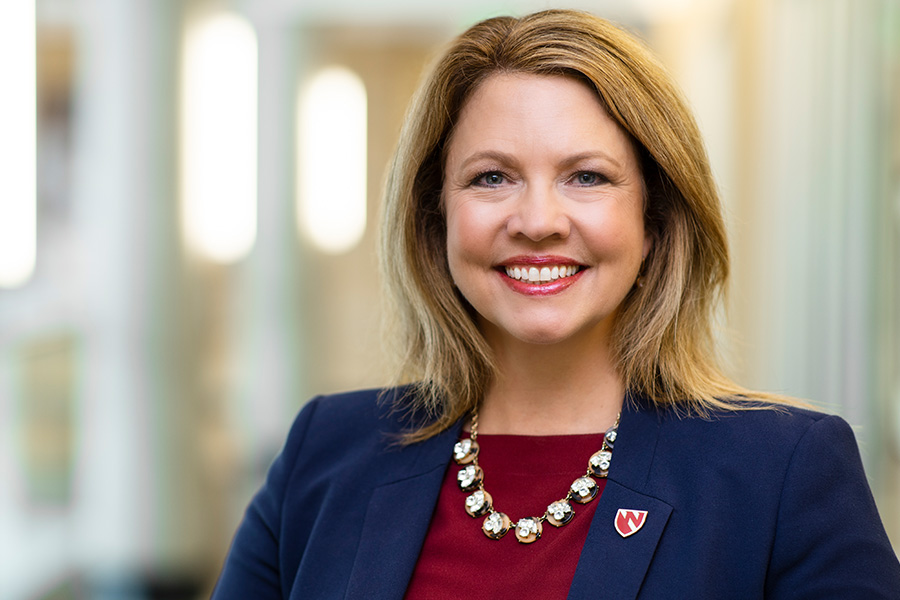uBEATS now offers a more expansive and rigorously endorsed program than ever, while students are enrolling in record numbers nationwide and completing increasingly higher numbers of modules.
uBEATS (short for University of Nebraska Medical Center and University of Nebraska at Omaha Building Excellence in Academics Through STEM) launched in 2020, and the recent growth underscores the demand for high-quality resources for teachers and students in health sciences and STEM, said Peggy Moore, director of the UNMC Office of Interactive E-Learning.
“We are excited that uBEATS represents UNMC across the state and nationally,” Moore said, “addressing the breadth of needs and early exploration that is critical to our future health careers workforce.”
Among the program’s notable milestones:
- Student enrollments tripled in the 2023-24 school year compared to the 2020-21 school year, growing to a high of 30,439. Additionally, students completed more than 11,000 uBEATS modules.
- Educators in 48 states now use uBEATS.
- uBEATS now offers digital badges to students who finalize certain progressions of modules to verify their completion. It’s a way to offer students “microcredentialing” – a growing standard for offering a resume-quality stamp of approval for their achievement. Over the last school year, uBEATS awarded 270 digital badges.
- The program now is nationally endorsed and a member of the National Consortium for Health Science Education. To gain the endorsement, uBEATS staff aligned each of its 90-plus e-learning modules to the national health science standards, then gained verification by the NCHSE. Now, the uBEATS modules have a high stamp of approval, along with the national promotion that comes with it.
uBEATS was formed to address the growing need for health science and STEM education at the primary school level, offering educators and students an entry into health science education. It offers free digital content geared to grades 6-12 in such areas as careers, cancer, genetics, pathology, microbiology, pharmacology and public health, with upcoming modules on behavioral health and medical terminology.
Learn more about the uBEATS program online.
The program is a collaboration among UNMC E-Learning, the UNMC High School Alliance and the University of Nebraska at Omaha. Within UNMC, the program also partners with faculty, its Rural Health Programs and the Nebraska Area Health Education Centers.
UNMC Interim Chancellor H. Dele Davies, MD, envisioned and spearheaded uBEATS as UNMC’s senior vice chancellor for academic affairs beginning in 2017.
“It is wonderful to see the growth of the uBEATS program to now impact thousands of students across Nebraska and the nation,” Dr. Davies said. “With the short supply of science-trained middle and high school teachers, and with the great need for high-quality and vetted health-related STEM teaching materials, uBEATS is helping to fill a major void.”
Deanna Ingram, uBEATS curriculum specialist, said the program is fostering a vibrant community among educators. As the offerings expand, she said, educators across Nebraska and the nation are coming together, collaborating and learning from one another.
Now, Ingram said, uBEATS is shifting even more of its focus toward career exploration in the health sciences. The goal is to offer students more of a pathway toward a place at an academic medical center such as UNMC.
The program is one more way for UNMC to address the shortage of health science professionals across Nebraska, in rural communities, and in underserved urban areas, Ingram said.
Zuzi Greiner, uBEATS instructional technologist, said the programs’ “Careers in Health Care” modules have quickly become the most accessed content within uBEATS.
“By introducing students to a wide range of careers they may not have previously considered, we are fulfilling our mission as a pathway program,” Greiner said. “These modules provide invaluable exposure and inspire the next generation of health care professionals.”
